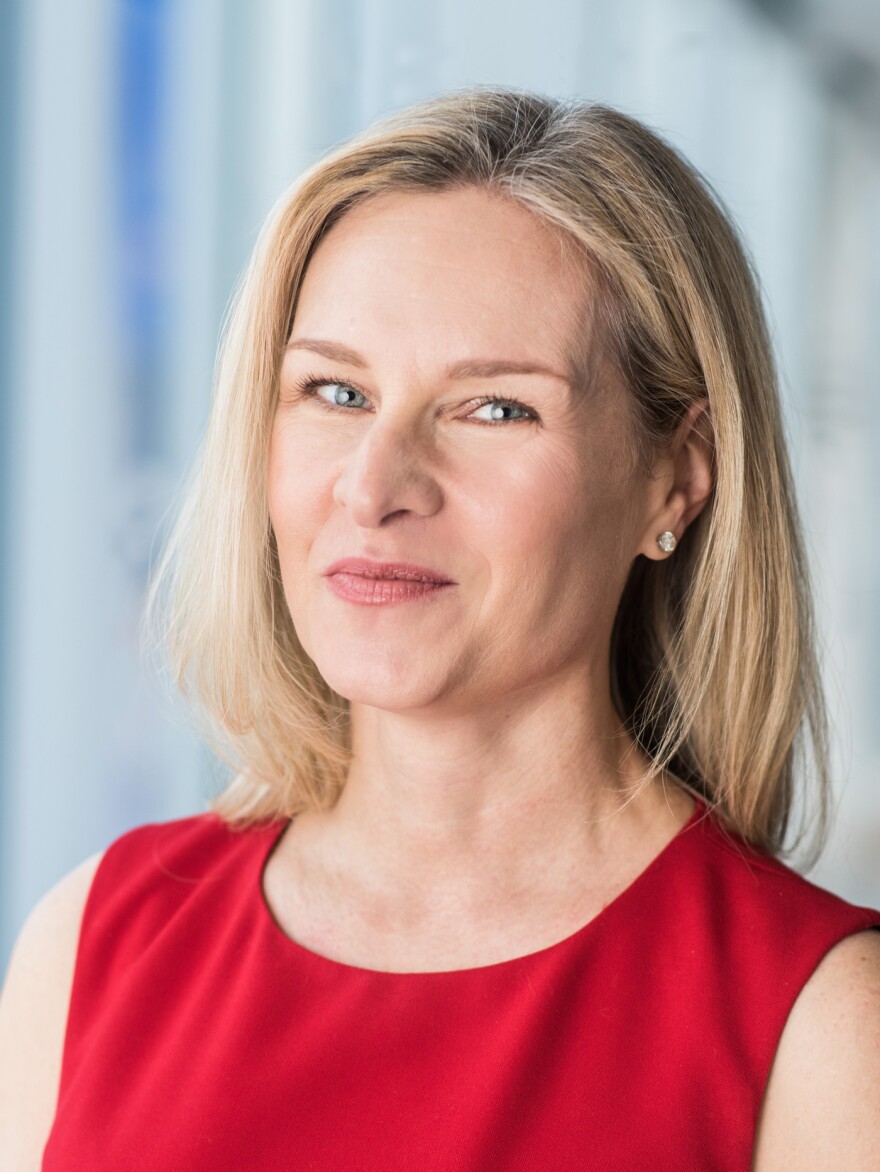As NPR's first national security correspondent, and now as co-host of All Things Considered, Mary Louise Kelly has traveled to the far corners of the globe — from the Khyber Pass in Iraq to North Korea. However, until this month there was one exotic place the journalist had never been — Wisconsin.
Kelly was the featured guest at WUWM's Murrow Society event recently. In conversation with Lake Effect's Mitch Teich, Kelly touched on a host of issues that have been part of her life:

Covering National Security
Kelly created the national security beat at NPR after filling in on the diplomacy beat. She says operating without a blueprint was a freeing experience, but it had challenges as well. "If you cover one of the big beats in Washington," Kelly explains, "[like] the White House, Capitol Hill, the Supreme Court — you get a hard pass and you can go every day. And there's a place where you can file from, and you run into people."
"Needless to say, when you're covering the CIA or the National Security Agency, you can't do that. And so that was a learning curve."
Kelly notes that for covering an industry that's based on subterfuge, she has found that her sources generally want to tell the truth. However, she says she's always aware that her sources may be risking their careers in talking with her. "You're always aware of it, that there's zero upside for them in talking to someone like me," says Kelly.
#MeToo, & How It Was Covered At NPR
Kelly earned praise, both inside the network and outside, for her unflinching interview with NPR President and CEO Jarl Mohn. The interview came hours after the resignation of NPR News Vice President Michael Oreskes, who was accused by several women of sexual harassment. Kelly says she was horrified by the allegations, but believes Mohn's willingness to submit to an interiew speaks highly of the network.
"I think it was very important to NPR that we do that [interview]," Kelly says. "It was an empowering response from the newsroom - we are journalists, we will cover ourselves with the same rigor and transparency as we would cover this if it happened at any other news organization."

Balancing Work & Parenting
Kelly stepped away from journalism after several years at NPR. She describes it as "hitting the wall." The situation reached its tipping point when Kelly was preparing to board a press helicopter that was traveling with then-Defense Secretary Robert Gates in Iraq, and the nurse at her four-year-old son's school called to tell her that he was ill and likely needed immediate medical care.
"And then I lost the [phone] line," Kelly recalls, "and I had no choice but to get in the helicopter and go up. And I had this moment that I will never forget, just sitting, sobbing, in a helicopter looking down over the traffic of Baghdad, thinking, 'What am I doing?'"
Kelly says it took a few months to summon the courage to quit, but she eventually did, spending time with her children and writing the first of two published spy novels. (Kelly is currently on a six-week leave from NPR to work on a third.) She decided it was time to return to the network following the Paris terror attack of 2015.






